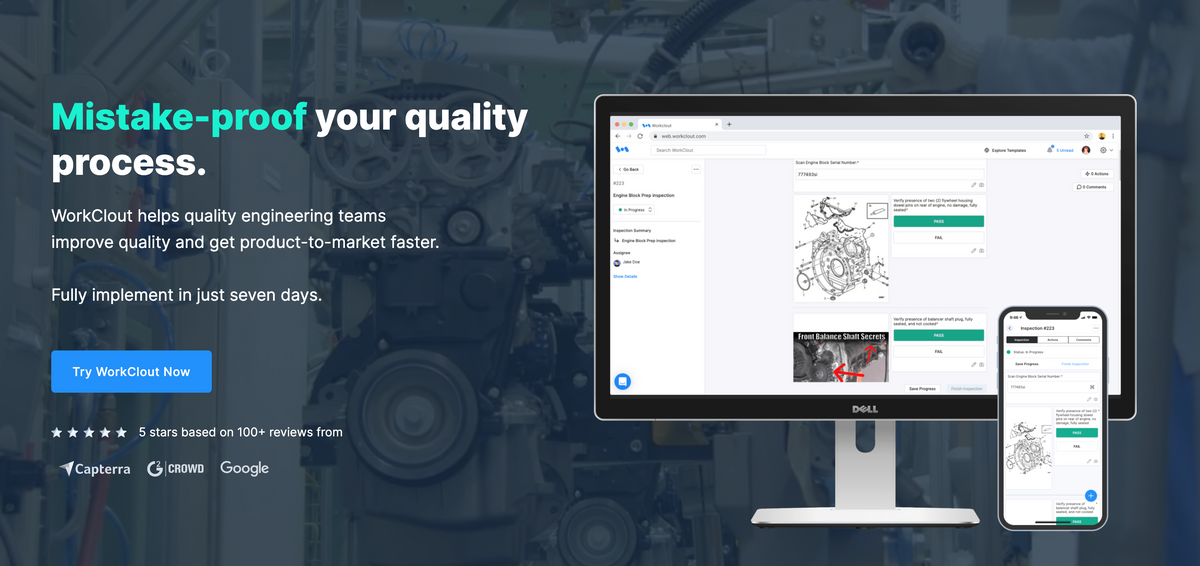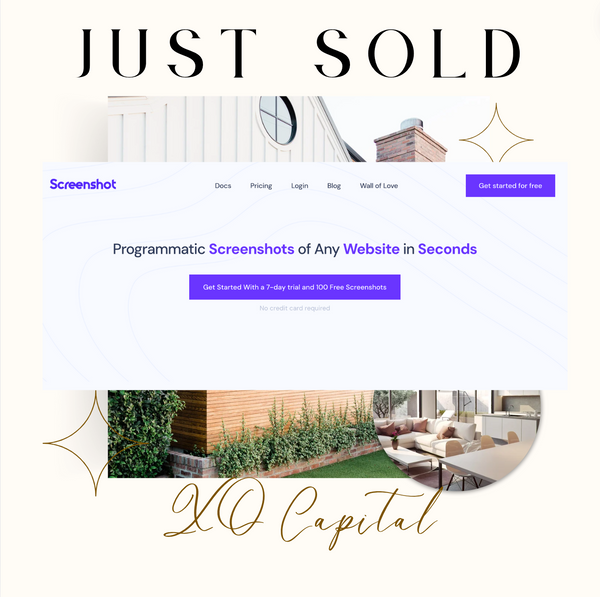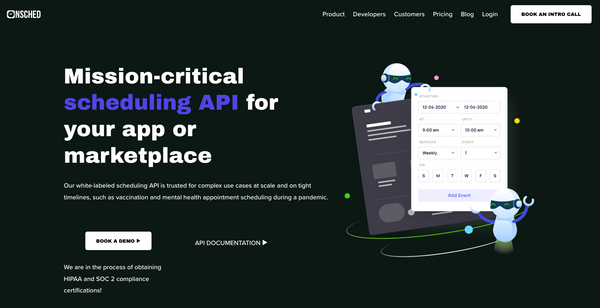Acquisition #5 - Workclout.com 🔨

We bought another YC company (for clarity, we bought the assets of Workclout Inc. The corporation was acquired by Luxury Presence in a separate transaction.) The last time we bought a YC company('s assets) I spent more time thinking how cool it would be to buy a YC company than I did thinking through the business. Fortunately we found a better home for that company. This time though, we bought a really cool product from a talented team that happened to go through YC. This acquisition reminded me how delightful this process can be when you have an awesome seller.
Alternatively, this week we said no to a deal under LOI because we got weird vibes from the guy we were buying it from. He was being a tool. Pushy. Agressive. And god forbid he do any actual work to help us understand the biz. It's too bad, we could have bought it quickly from him but the idea of asking that dude for some help in a month from now gave me pause. Also, shit, the guy was just being a little shady. We're in the trust game after all.
...back to WorkClout. WorkClout lets businesses who make physical products inspect them for defects. Think of it like a vertical form builder product for the industrial sector. One of our customers builds engines. They use WorkClout to inspect each engine before it gets shipped off to make sure it passes all the tests it's supposed to. If you think e-commerce has expensive returns, how about a faulty engine after it's been installed in a power grid 200 miles from the nearest airport.
The revenue from this acquisition will unlock Danny Chu (new Partner at XO) to join XO full time (yay!). Danny left his job as the COO of a different YC company and has a great track record of building companies. He's also just a good dude.
So what's the bet here (again, other than it's just a good mission critical product)? The real question I'm asking is what kinds of businesses XO should buy. We have several self service products (freemium). Those work great for our model. They don't really require a CEO yet, and nobody has to do any sales. If you want the thing, you can sign up for free and upgrade yourself. If not, that's cool too.
Freemium is a great fit for a shared service model because we can really have one function serving multiple products. The only reason this works is because individually the scale of each co is quite small. For example, let's say sheet.best has 2 hours of support tasks each week total. I can't really justify a full time support person for that even though I loathe customer support (I know, I'm supposed to pretend I like it, but I just fucking don't. Sorry, not sorry). But, if I have 5 companies that each require 10 hours of support tickets each week, well, you get it. I can have one person doing customer support for multiple companies. It's likely the same with marketing. I don't think we have marketing figured out in any real way despite some decent growth stats but I do know that a content pipeline is a content pipeline. We're building one, and whether that process outputs some technical post for our developer audience or some riveting industrial news for our domestic manufacturers, it's still just a content pipeline.
So back to WorkClout specifically. Danny knows how to do sales really well. WorkClout is an experiment in taking on a company that requires a sales cycle and a sales process. Without one, sales don't happen. At first glance, buying something that will add operations to an already operations heavy model (XO as a whole) is an obviously bad idea. But maybe it's not. The nuance is in the dollar amounts. WorkClout sells a product that costs thousands of dollars a year.
Acquiring customers costs money. Let's loosen that a bit and just say acquiring customers costs time. If we have to spend X hours across several departments (our ad person, our marketing person, our copywriting person, etc) to convince one self service customer to sign up, we'll end up with some CAC. We can attack this problem en mass via tools like bulk email, push notifications etc. For WorkClout though, we might sell a package to a new customer that's like $25k a year. Do you know how fucking long it takes to get to $25k ARR $19.99 at a time?! It takes so long most companies never ever get there. If they do, they're so burned out by the time they make it there, they end up selling their business to us! (Kidding).
In short:
$25k ARR (WorkClout) = 1 to 2 customers
$25k ARR (Freemium at $25 / user / month) = 84 customers.
84 customers is cool. It's diverse, unlikely to all churn at once, makes potential buyers feel comfortable. But this is a trap! 84 people ask a lot of questions. mostly dumb questions that are answered on the site already! In any group of 84 people there's also always a few that want you to be their bitch over support. "Get me my invoices for the past 6 months in one PDF?" "How do I do this really weird thing with your product" etc.
But a smaller number of customers, especially enterprise (ish) customers are different. They mostly just STFU and pay their bills. They're never late. They only ask for things they really need. And cognitively there's actually something really nice about having a smaller list of customers who you actually know. You can text them product ideas and they'll be straight with you. "No, we don't need that". Or, "Yeah I think that would know Billy's socks off, please go build that!". You can send them fruit baskets for the holidays. And when push comes to shove, if you need an exit, they'll be the first people to put a bid in. They're more strategic, etc. etc etc.
Point is, I don't know yet which is a better model for us. Despite WorkClout being more time consuming for us, on a return basis, it might be the thing that makes us the most money over time.
We shall see. My usual response to something like this is ask me in 5 years.
✌️,
Andrew





